Anyone who visits the monastery can speak to the beauty and splendor of our forests and grounds. Year round, our grounds crew works to allow this natural beauty to come alive while still keeping the growth of our grasses and trees maintained. Though our fields remain patched with green and our conifers retain their rows of verdant needles, much of the plant life withers and dies in the winter months. In the winter, when the trees shed their leaves and many plants lay dormant, the work of the grounds crew does not diminish with the plant life, but, rather shifts its focus.
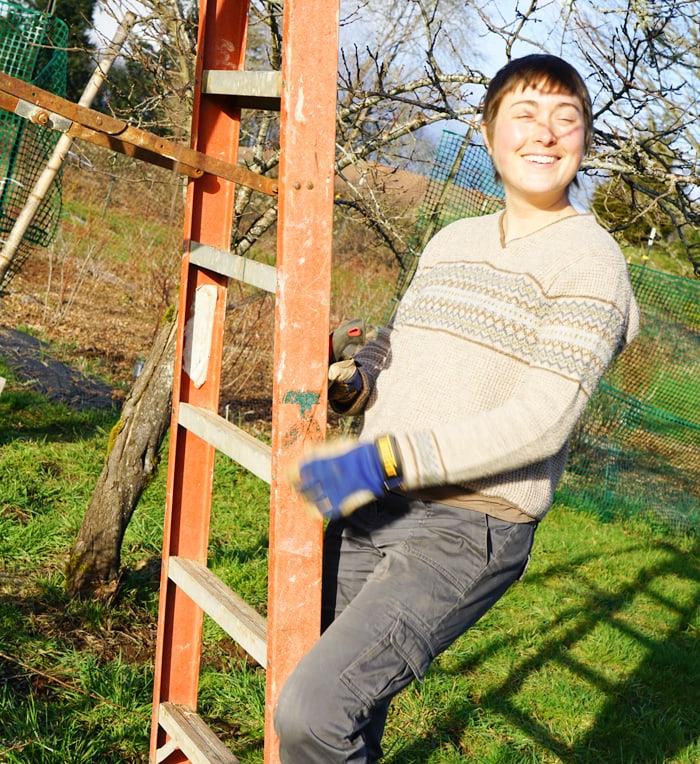
We have a number of fruit trees around our property that produced abundantly this past summer and fall, meaning a lower yield the coming year. The colder months are an excellent time to prune the trees to encourage healthy growth with less chance of diminishing a high harvest. Fallon “Korin” Roderick, one of the leaders of our Grounds Crew, has especially enjoyed the pruning work. Knowing Korin, this excitement is understandable. Part of the reason she co-leads the grounds crew is her natural affinity to taking care of living things. Pruning merely trims off the excess branches on a tree while the plant itself does the growing. She feels nourished by this minimal intervention in plant life, letting its innate wisdom take the lead.
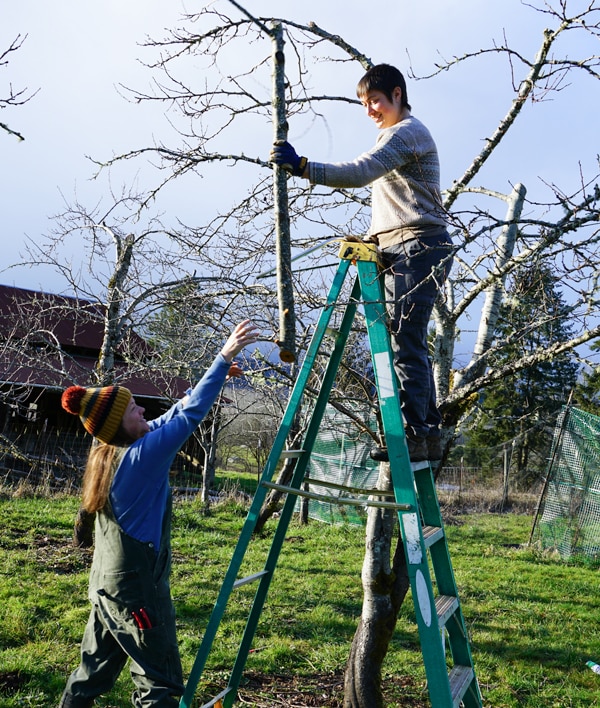
Her connection with the earth has made it so she rarely feels alone or depressed when she goes outside. As she puts it, “how can I [be sad when] surrounded by this sangha of beings?” Her dharma name “Korin” translates to “bright forest”. The Japanese characters depict a grove of trees, or a group of beings living together, connecting her love of the outdoors with her love of community. From the beginning, these two elements have been crucial parts of her path. Her first spiritual milestone occurred on a backpacking trip to Mt. Hood with her first spiritual teacher when she was twenty. That break from society filled her with gratitude for the abundance the earth provides us as well as the belief in her own strength.
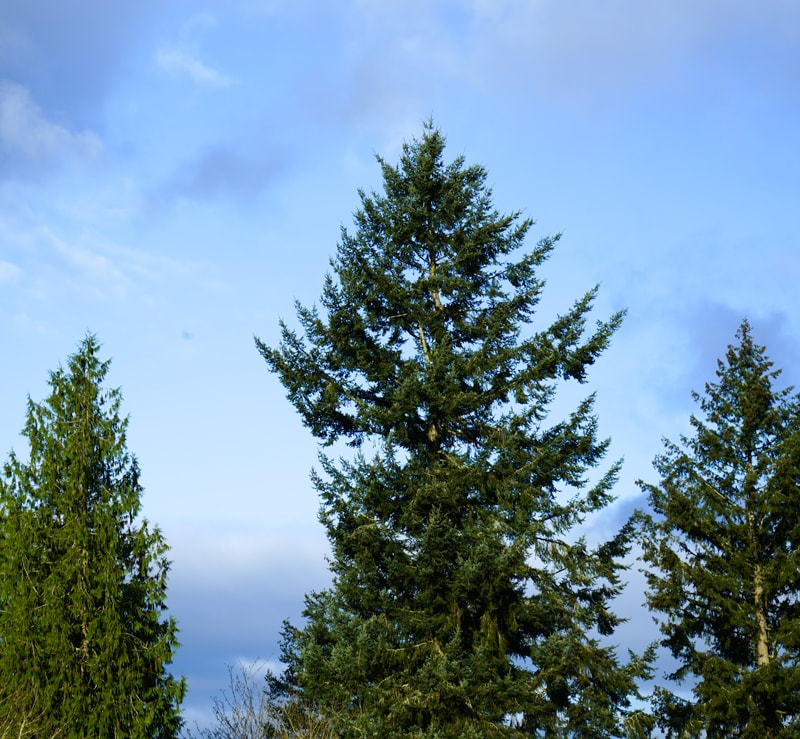
She didn’t begin a regular sitting practice until two years later when she spent a month at Great Vow in 2012. From the start she felt a resonance with the monastery but was still attached to her first teacher, Satya. Though she values her time with Satya, she felt that her vibrancy was missing when she practiced with him. Part of that loss stemmed from her disconnection from a larger spiritual community. When she sat Rohatsu at Great Vow in December 2015, she realized she had been around her perfect sangha all along. One of her favorite things about the monastery is the support of the community and how much emphasis the teachers put on sangha. Here, she feels, the practice is less about a single person achieving something and more about forming one ecosystem that mutually benefits everyone.
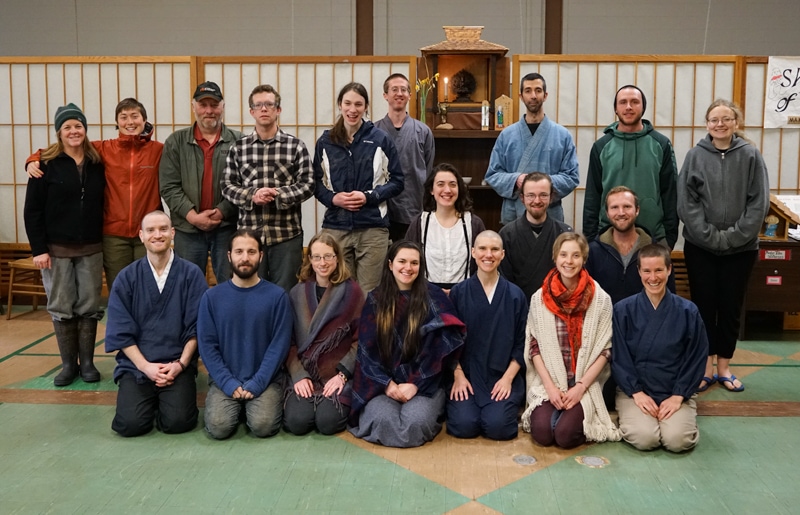
This belief in the power of nurturing other living beings-and of allowing oneself to be nurtured in return- can be seen not only in her groundskeeping but in other aspects of her life at the monastery. Korin serves as the resident fermentation expert, taking care of the living organisms that give us water kefir and sauerkraut. On Mondays, she volunteers at the local food bank as a way to benefit Clatskanie and connect Great Vow to the larger community. Not only does Korin value the vibrancy and aliveness that community brings, she herself is a shining light that draws living beings together for the sake of harmony and growth.
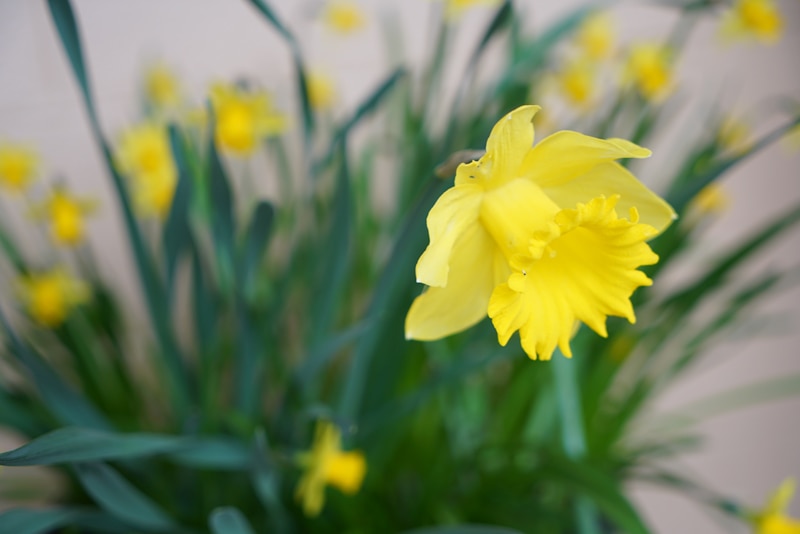
But both groundskeeping and monastery life are not only about caring for and shaping what is there. Sometimes, the work at hand means clearing things away. Anyone in the Portland area knows that this winter brought with it an unusual amount of snow. The added weight on the trees in our forest meant a lot of them fell down, often onto the snaking trails around the monastery. Christy, our other grounds leader, has been spending a lot of time in the woods either removing the fallen trees or rerouting the trails around them. Christy felt a similar necessity for rerouting in her own life over a year ago when she first started practicing Zen in Gainesville, Florida, her hometown.
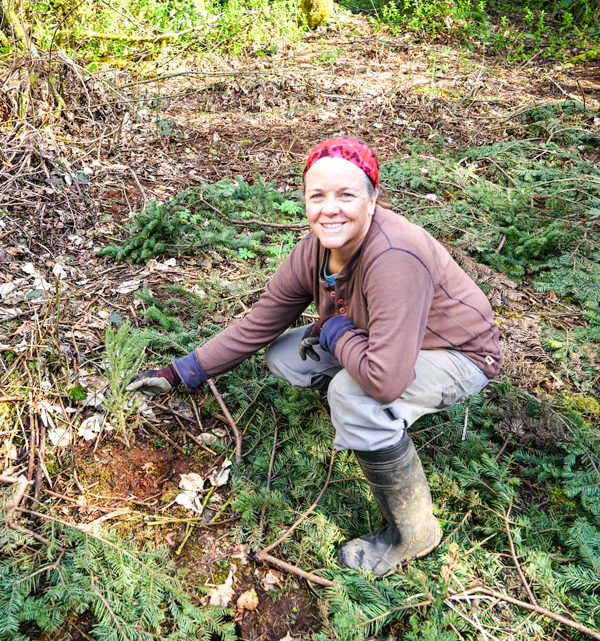
She had been Vice President of Marketing for an environmental consulting firm for years, first interested in the field due to her love of the outdoors, but was beginning to feel that the work was inconsistent with her heart’s aspiration. Though she hadn’t practiced Zen before last year, she has always felt an affinity with the culture around Zen- calligraphy, traditional Japanese architecture, the music of the shakuhachi and the “spaces between” that the culture seemed to emphasis and prize. When she looked for a group meditation opportunity around where she lived, she found one called Dancing Crane Zen Center. Having just bought a painting of dancing cranes, Christy felt the auspicious synchronicity as something that was calling to her.
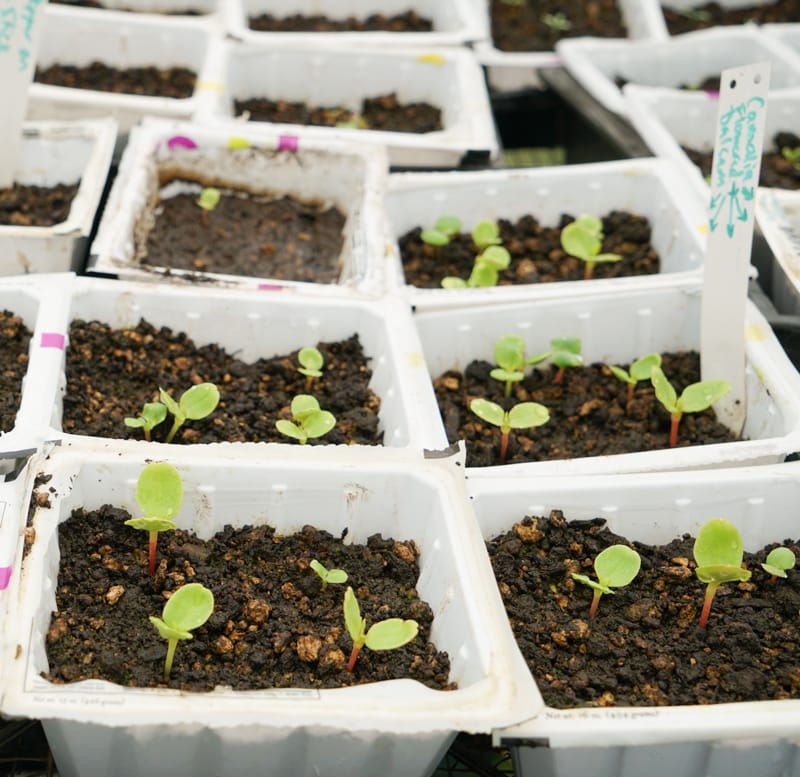
From the time she sat her first sesshin with Dancing Crane at the Gainesville Retreat Center, she could see how short time really was and that this practice deserved hers. She first visited Great Vow in early 2016 on a trip to visit Portland friends and knew she was going to come back to this place as a resident. She came into residency in June of that same year for the Summer Program. Save for a few months in the fall where she had to to tie up a few loose ends [I went offshore for work and to the mountains to do some backpacking…still haven’t been back to Florida ;-),] Christy has been living at the monastery and supporting the monastery grounds ever since.
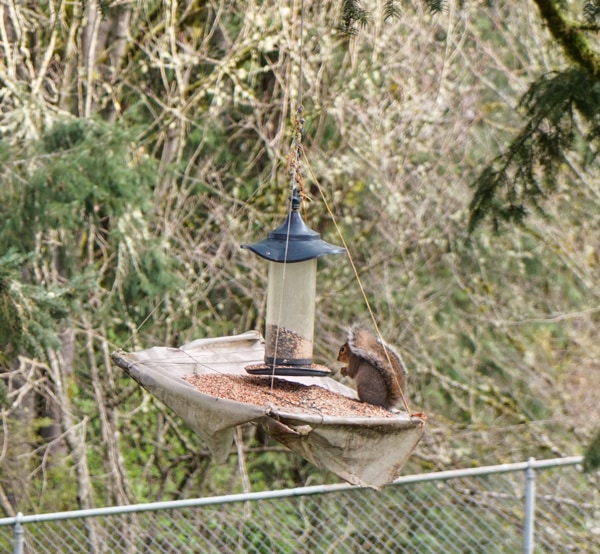
One thing that sets her heart on fire is the sound of the bells and drums of the monastery. During our chanting services and meditation periods, we use many different-sized bells. Having just completed her role of timekeeper for our 8-day March silent retreat, Christy became well-versed in the myriad sounds of Great Vow’s bells. She also appreciates what she calls the “imperfect harmony” of the community. Somehow, a group of 15-20 people from different backgrounds can live and practice together, even making something bigger and stronger than their individual selves could. Her pleasures range simpler as well. When asked if she has favorite monastery meals, she answered “any of the cookies”. Besides practicing Zen, Christy enjoys snowboarding, trying new types of coffee, soccer, reading books about botany and the dharma (she’s currently rereading Sekida’s Zen Training).

Since beginning her time at Great Vow, however, she has also found pleasure in the silent mind beneath forms and activity. When you let that inner quiet come forth, she says, the mind does not add anything extra and what is can be enjoyed without doing or saying anything. She finds the direct, tangible engagement with the trees and forest- rather than from behind a desk at her previous job- a way to engage with the stillness of the present. While being an environmental consultant could have the effect of diminishing her connection to the outdoors, taking care of our forests and trees is helping her relearn this intimacy. She notes the calming, “aligning” effect of walking in the woods, how it can release all the energetic and psychic knots that the thinking mind can create. If she can “get out of the way,” so to speak, and let the forest work on her, deep stillness and ease arise.
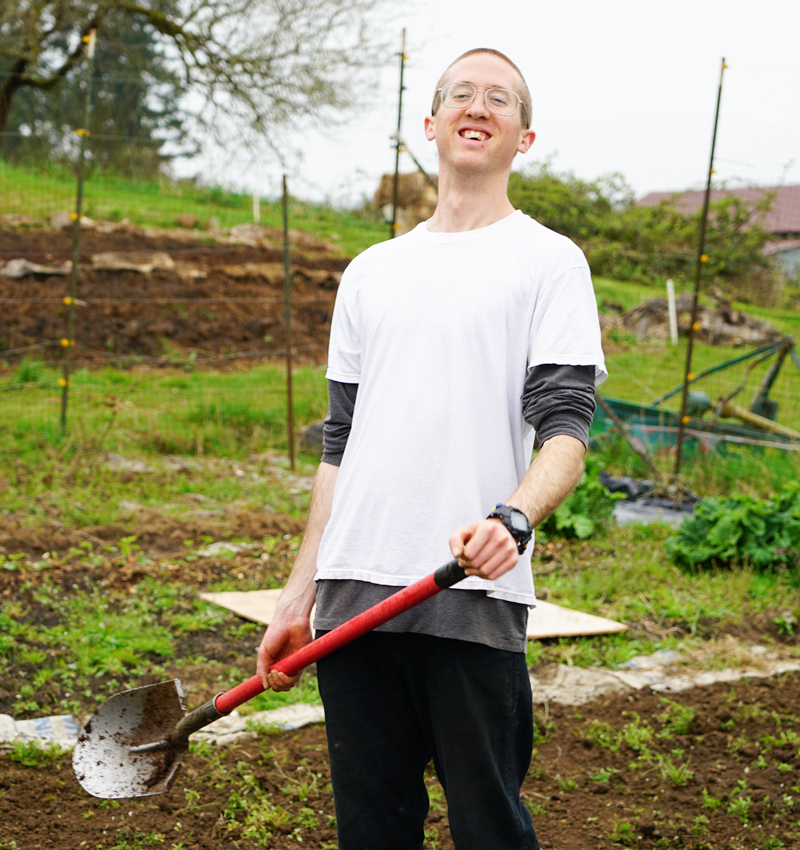
The task is not always easy to do. During last sesshin, Christy and Korin had to plant 100 Douglas Fir trees around the monastery, without any prior planning, while in silence. She had to balance the necessity of productivity with the maintenance of an inner quietude. The forest helped, she said. The mindful awareness that occurs amidst nature is what Christy aims to cultivate. The more she can “get out of [her] own way,” and allow her thoughts to drop away, the less opposition she feels, both internally and externally. Great Vow is the first place this empowering surrender became something more than a mental concept for her. Though resting in that place of ease comes and goes, she is seeing that she doesn’t have to do as much or avoid as many things to be comfortable. The ease is always there, even if it’s not always accessible.
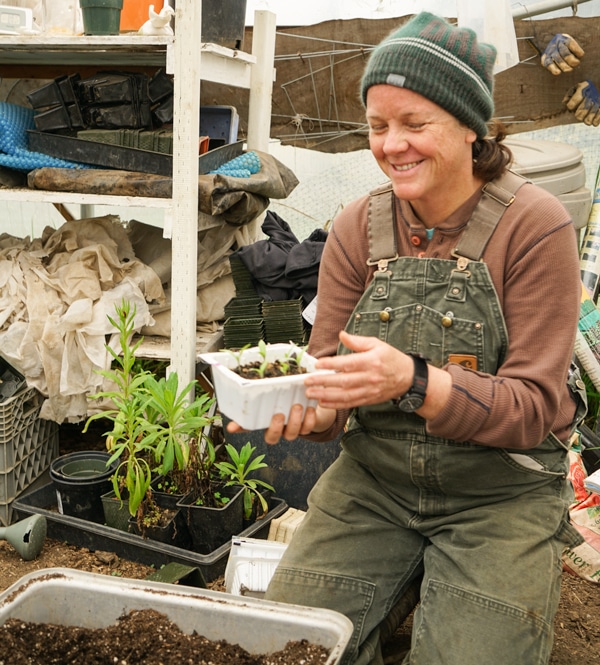
Both of these strong, smart women show a devotion not only to their work on the forests and grounds, but to their own character and spiritual development. These two things are not exclusive, but seem to mutually benefit each other, just as Korin and Christy receive growth and healing from the earth. Their relationship to the grounds and to practice show how intimacy and presence with those around you open you up to something beyond the self. This interdependence does not make you smaller but shows your interconnection within a vast network of beings. Both the planter and the planted, the pruner and the pruned, are touched by the act of digging and snipping. Both Christy and Korin, and the grounds itself, deserve our gratitude.
Written by: Chloe Margherita
